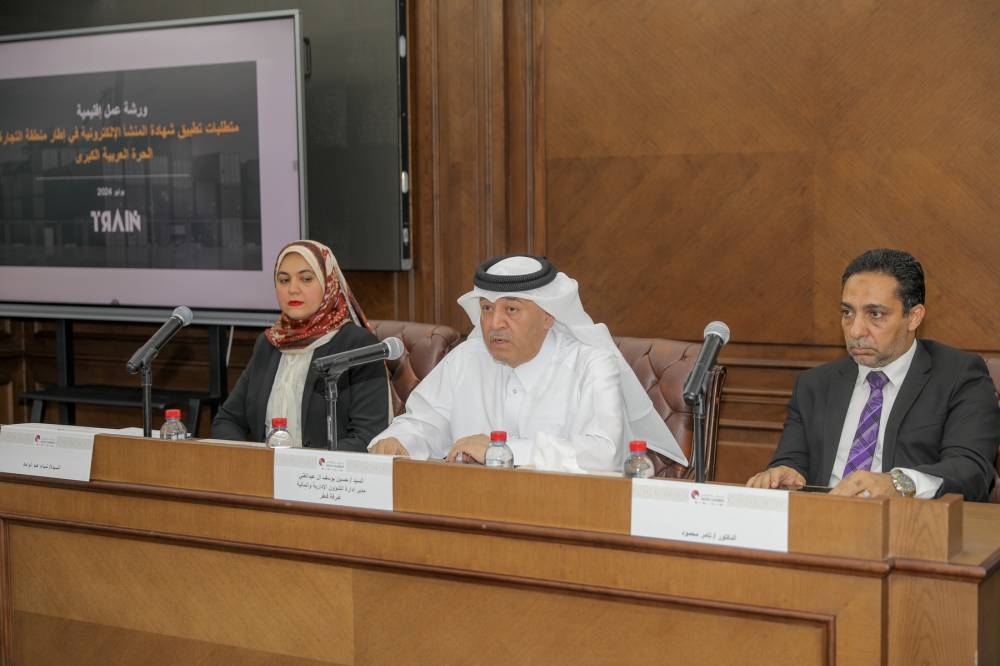Qatar Chamber on Monday hosted a regional workshop on the ‘Requirements for the Application of Electronic Certificate of Origin (e-CO) in the Framework of the Greater Arab Free Trade Area (GAFTA)’.
The seminar was organised by the General Secretariat of the League of Arab States within the framework of co-operation with the International Islamic Trade Finance Corporation (ITFC) through the implementation of the second phase of the Aid for Trade Initiative for the Arab States (AFTIAS 2.0).
The three-day workshop aimed to identify the mechanisms for exchanging e-COs among Arab states. As many as 32 participants from 11 Arab countries that are members of the GAFTA took part in the event.
It also addressed challenges faced by countries in the application of e-COs and explored successful Arab experiences in this regard. Additionally, it discussed recommendations for increasing the number of Arab countries issuing e-COs.
In the inaugural session, Hussein Yousef al-Abdulghani, director of the Administrative and Financial Affairs Department at the chamber, said that the issuance of e-Cos is an important factor in developing the intra-Arab trade.
Al-Abdulghani stressed that the workshop supports Arab economic integration. He expressed hope that the event will offer recommendations that would increase the number of countries issuing the e-COs in the framework of GAFTA.
For her part, Lamia Abdelwahed, Rules of Origin officer at the Arab Economic Integration Department of the Arab League, thanked the chamber for hosting the workshop.
She highlighted the Arab League General Secretariat’s keenness to keep up with global commercial developments, which contribute to the advancement of Arab integration in the framework of the GAFTA.
Abdelwahed also assured the significance of e-COs in promoting and streamlining the inter-Arab trade. She pointed out that one of the most prominent achievements of the past years in the rules of origin sector is the acceptance of e-COs by the Arab countries.
“There are six countries currently issuing the certificate of origin electronically: Qatar, the UAE, Saudi Arabia, Oman, Kuwait, and Morocco,” she added.
Abdulatif al-Buraiki, co-ordinator of the Certificate of Origin at Qatar Chamber, delivered the first session, which highlighted Qatar’s experience in issuing Arab e-Cos.
Al-Buraiki reviewed the steps of registration by companies in the Arab e-CO service, which was launched by the Chamber in 2020. He also explained how companies submit the application and verify the validity of the issued certificate.
In the second and third sessions, Dr Tamer Mahmoud, an international expert specialising in rules of origin, reviewed the development of the issuance of certificates of origin and its provisions within the framework of the GAFTA. He also highlighted the mechanisms for verifying the validity of the issuance of the Arab certificate of origin.

The seminar was organised by the General Secretariat of the League of Arab States within the framework of co-operation with the International Islamic Trade Finance Corporation (ITFC) through the implementation of the second phase of the Aid for Trade Initiative for the Arab States (AFTIAS 2.0).
